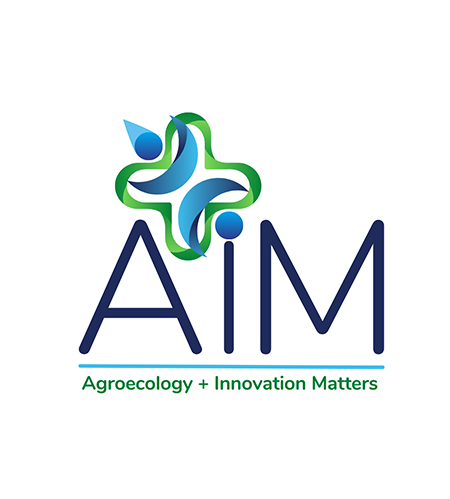As with much of Illinois agriculture, DeKalb County’s most plentiful commodities are corn and soybeans, followed by hogs and beef cattle.
But don’t forget the apple orchards. Or the dairy cattle, sheep, goats, and chickens. Or the pumpkins. Or the fresh vegetables and greens destined for Chicago markets. Or the hay, oats, raspberries, strawberries, and Christmas trees. Or the whiskey.
Okay – that last one is not a commodity. But it’s the revenue-generating result of the corn, wheat, and rye that’s cooked up at Whiskey Acres.
This on-farm distillery is a mile or so south of the city of DeKalb (and 65 miles due west of downtown Chicago’s Millennium Park). The “seed-to-spirit” operation has won national and international awards and has led the owner-operators to develop their own corn hybrids to ensure the consistency and quality they desire.
In addition, about 20,000 of the county’s 353,000 farmland acres are planted in organic crops – from the produce sold at farm stands and farmers markets to thousands of bushels of organic corn and soybeans, often produced for export.
Farming entrepreneurs “progressive”
Greg Millburg, manager of DeKalb County Farm Bureau, is not surprised by that entrepreneurial spirit.
“Looking at history of DeKalb, farmers have always been progressive over the past century – always looking at new options,” he said.
It may be the entrepreneurial and progressive nature of Dekalb County. Farmers started with the 1912 founding of the DeKalb County Soil Improvement Association, which later became the Farm Bureau. That proto-Farm Bureau was more about economic-development (buying bulk limestone and passing savings to farmers; buying high-quality clover seed; and seed-development that led to hybrid corn varieties) than the lobbying and insurance that Farm Bureau is nationally known for today.
In 1926, as the Soil Improvement Association became the DeKalb County Farm Bureau, its focus shifted to sharing farm services, education, and information. Still, it continued with ventures to benefit agriculture and the economy such as a livestock marketing association, a farm management and record keeping service, soil testing, a grain export company, and a meat processing facility.
It helps that county government recognizes profitable agriculture is good for the county’s bottom line. Dekalb commissioners two years ago approved a proclamation praising the county’s 2,300 farms, their $724 million in annual revenues, and the local jobs that add to that value – which the proclamation called “the backbone of our country.”
It’s about not just bushels per acre, but dollars per acre. It’s about strengthening the community and the agricultural economy, improving soil health, and preparing farmland for the next generations.
That’s what Paul Kuhn is focused on.
DeKalb County SWCD chair
“I always look forward to visiting about the journey our farm is on,” said Kuhn, adding with a chuckle: “It’s definitely been a journey – there’s a lot of stuff we learned, and a lot of stuff we wish we hadn’t done.” That, of course, is part of the learning process.
Kuhn, chairman of the DeKalb County Soil & Water Conservation District, uses conservation practices on most of the 5,000 acres he farms in northeastern DeKalb County near Genoa. He does 1,500 to 1,800 strip-till acres, some vertical-till, and some chisel plowing. Because gullies have developed, he does some field cultivation every five years or so. Though he hasn’t yet done much experimentation with planting into cover crops that have not been terminated – he’s a big fan of cover crops.
“I did 1,800 acres of rye last fall, and 2,500 acres of oats,” he said. “I’m the instigator for the neighborhood. I spread oats and rye for other people. I grow 30 acres of oats every year for seed and 15 acres of rye for seed,” another source of farm revenue. The NRCS Climate Smart Grain Program provides incentive dollars for farmers to try cover crops and reduce tillage.
“There are 29,000 people in that program this year,” Kuhn said. “People are changing their attitudes.”
Understand your watershed
One reason the State of Illinois advocates cover crops and reduced tillage is to avoid nutrient runoff into waterways. Again, DeKalb County is a pioneer. Dean Johnson of DeKalb County Soil & Water Conservation District is one of the state’s first watershed coordinators in a non-urban Illinois county without significant surface-water features.
Watershed-based planning continues for DeKalb County with the Central South Branch of the Kishwaukee River, a 67,000-acre watershed that includes Genoa, Kingston, Kirkland, and surrounding communities. The district received an Illinois Environmental Protection Agency 319 grant – with a $50,000 matching grant from the DeKalb County Community Foundation — to develop a water-quality improvement plan for the Kishwaukee River watershed. The 67,000-acre watershed includes Genoa, Kingston, Kirkland, and surrounding communities.
“Our approach, probably unique to the state,” Johnson said, “is to be proactive. Understanding your watershed is one of the first steps to inspiring stakeholders to protect the watershed they live in.”
Story by Brian Williams — a freelance writer, consultant, and “Dot Connector” who contributes to AIM Illinois through his association with HNA Networks.
